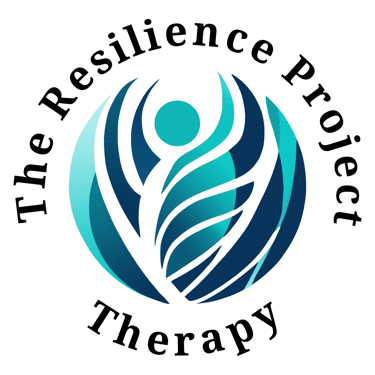What to Do to Prepare for Your First Counseling Session
Some helpful tips for getting ready for your first session.
Christian Gray Hering, LCSW
7/2/20233 min read


If you have decided to seek counseling for yourself or your relationship, you may be feeling nervous or anxious about your first session. This is normal and understandable, as counseling can be a big step and a new experience for many people.
However, there are some things you can do to prepare for your first counseling session and make it more comfortable and productive. Here are some tips to help you get ready for your first appointment with a counselor:
Know why you are seeking counseling. Before you go to your first session, it can be helpful to have a clear idea of why you are seeking counseling and what you hope to achieve from it. You can write down some of the main issues or goals that you want to address with your counselor. This can help you focus on what is important to you and communicate it more effectively to your counselor.
Do some research on your counselor. It can also be helpful to learn more about your counselor before you meet them. You can check their website, credentials, specialties, and reviews online. You can also contact them by phone or email and ask them any questions you may have about their approach, style, fees, or policies. This can help you get a sense of who they are and how they work, and see if they are a good fit for you.
Be open-minded and honest. One of the most important factors for successful counseling is the quality of the relationship between you and your counselor. To build trust and rapport with your counselor, it is essential to be open-minded and honest with them. Try not to hide or minimize your feelings, thoughts, or behaviors. Share as much as you feel comfortable with, and don't be afraid to ask questions or express your concerns. Remember that your counselor is there to help you, not judge you or criticize you.
Prepare for some emotions. Counseling can bring up a lot of emotions, both positive and negative. You may feel relieved, hopeful, understood, or validated by talking to your counselor. You may also feel sad, angry, anxious, or ashamed by discussing some of the difficult issues in your life. These emotions are normal and expected, and they are part of the healing process. Try not to avoid or suppress them, but rather acknowledge them and allow yourself to feel them. Your counselor will support you and help you cope with them in a healthy way.
Plan ahead for your session. To make the most of your counseling session, it is advisable to plan ahead for it. Make sure you have enough time and privacy for your session, especially if it is online or over the phone. Find a comfortable and quiet place where you won't be disturbed or distracted by other people or noises. Have some water, tissues, or other items that you may need handy. Turn off your phone or other devices that may interrupt you. Arrive on time or a few minutes early for your session, so that you don't feel rushed or stressed.
Reflect on your session afterward. After your counseling session, it can be beneficial to reflect on what happened and how you feel about it. You can write down some of the key points or insights that you gained from your session. You can also note any questions or feedback that you have for your counselor or yourself. You can also practice any skills or strategies that your counselor taught you or suggested for you. This can help you consolidate what you learned and apply it to your life.
Be patient and persistent. Counseling is not a quick fix or a magic solution for your problems. It is a process that takes time, effort, and commitment from both you and your counselor. You may not see immediate results or feel better right away after your first session. You may also encounter some challenges or setbacks along the way. However, if you are patient and persistent with yourself and your counselor, you will likely see positive changes and improvements in your well-being over time.
Last Thoughts:
Counseling can be a rewarding and beneficial experience for anyone who wants to improve their mental health and well-being. However, it can also be intimidating and daunting for some people who are new to it. By following these tips, you can prepare for your first counseling session and make it more comfortable and productive.
Remember that counseling is a collaborative process that requires your active participation and cooperation with your counselor.
You have taken a brave step by seeking counseling, and you deserve credit and support for it.
I wish you all the best on your journey of healing and growth.
(1) 7 Professional Tips for Beginning Therapy | Thriveworks. https://thriveworks.com/blog/tips-prepare-first-counseling-session/.
(2) How to Prepare for Your First Therapy Session | Psychology Today. https://www.psychologytoday.com/us/blog/millennial-mental-health-tools/202105/how-prepare-your-first-therapy-session.
(3) How To Plan Your Counseling Session: 6 Examples - PositivePsychology.com. https://positivepsychology.com/counseling-session/.
(4) How to Prepare for First Marriage Counseling Session. https://www.marriage.com/advice/counseling/first-marriage-counseling-session/.
(5) Top 8 Tips To Prepare For Your Therapy Session - Mental Health Guide. http://www.mentalhealthguide.com/8-tips-to-help-you-prepare-for-therapy-or-counseling-sessions/.
The Resilience Project Therapy
Mailing
P.O. Box 832182
Richardson, TX 75083
Contacts








